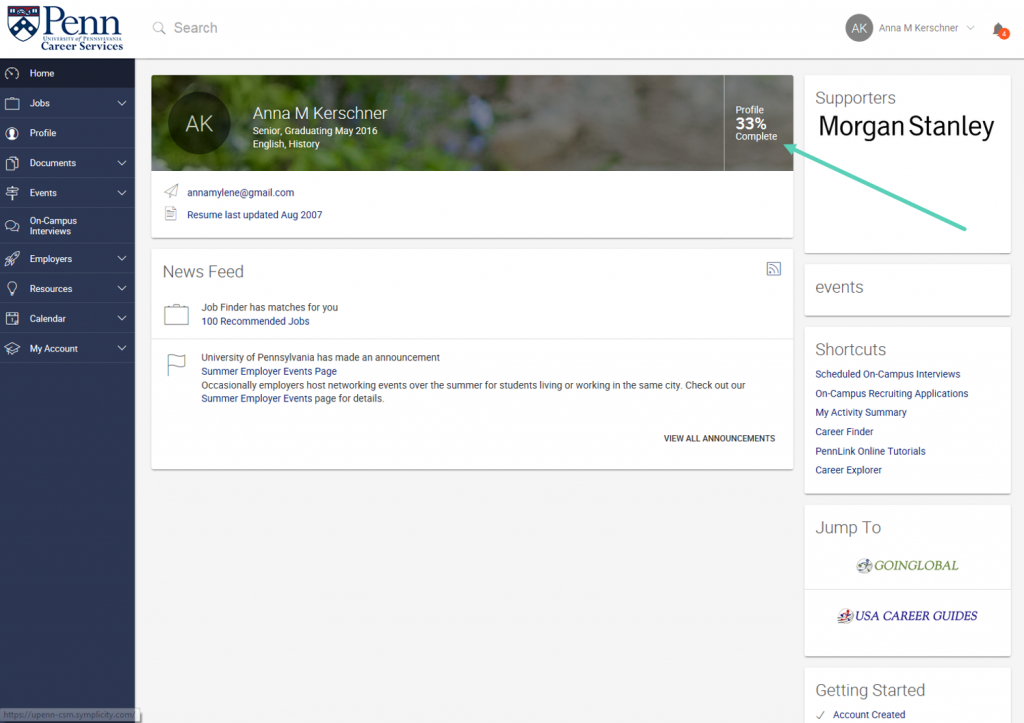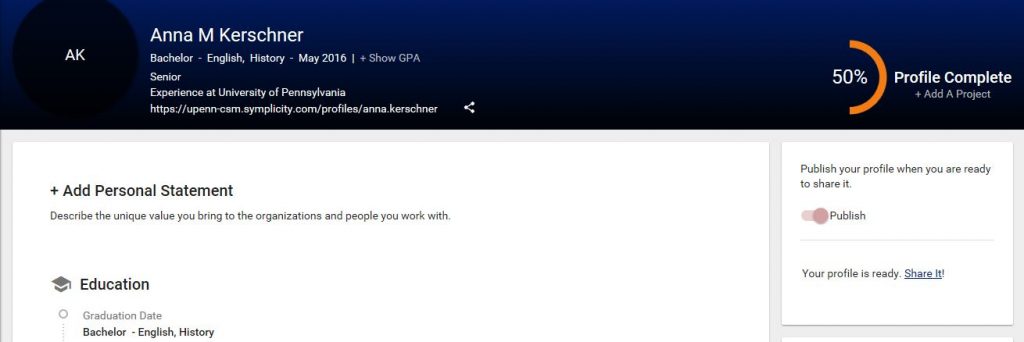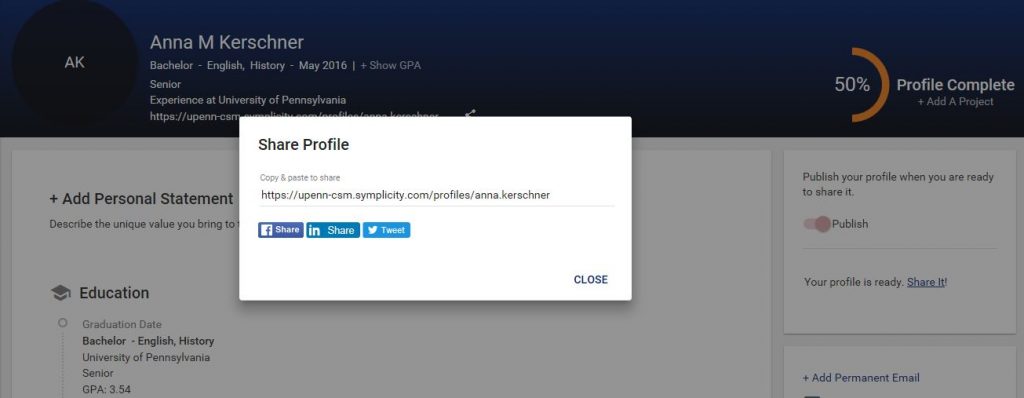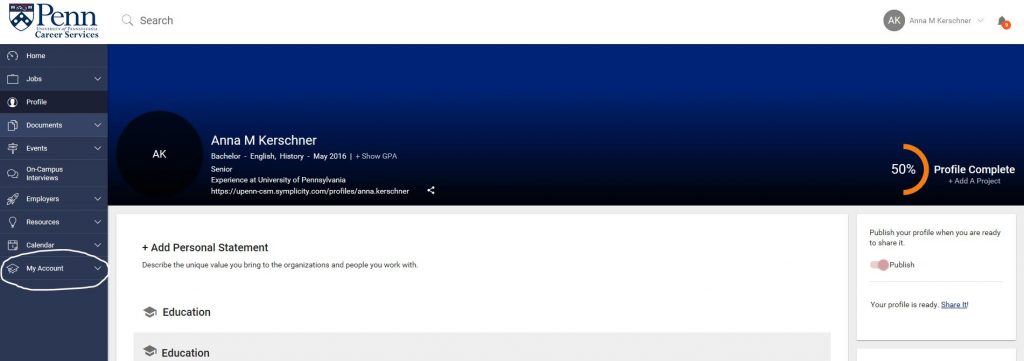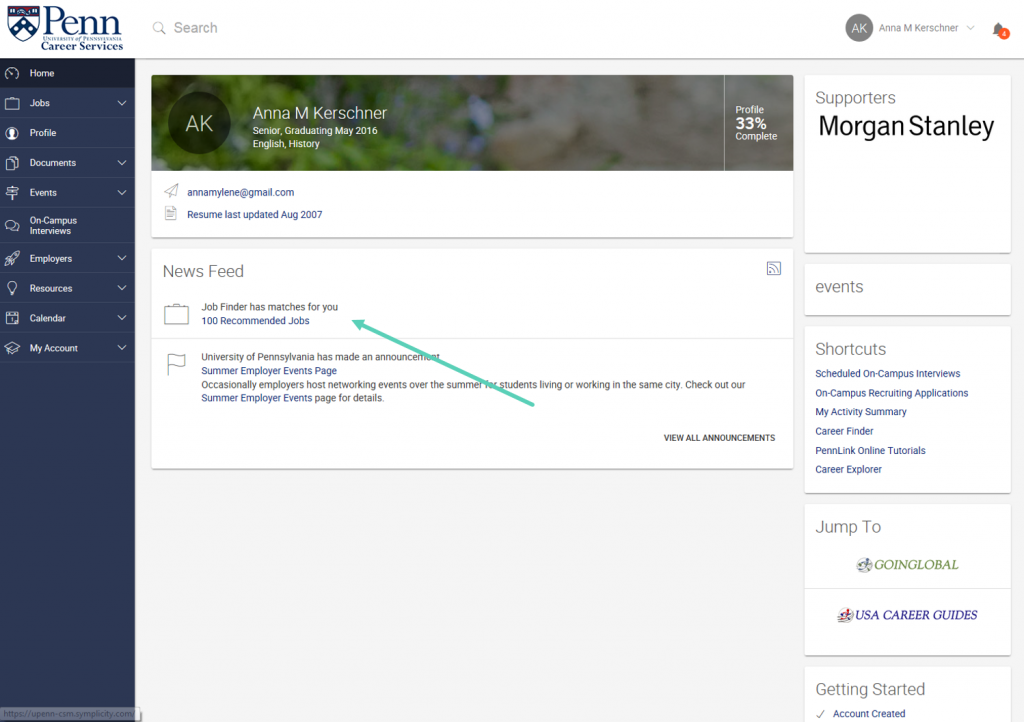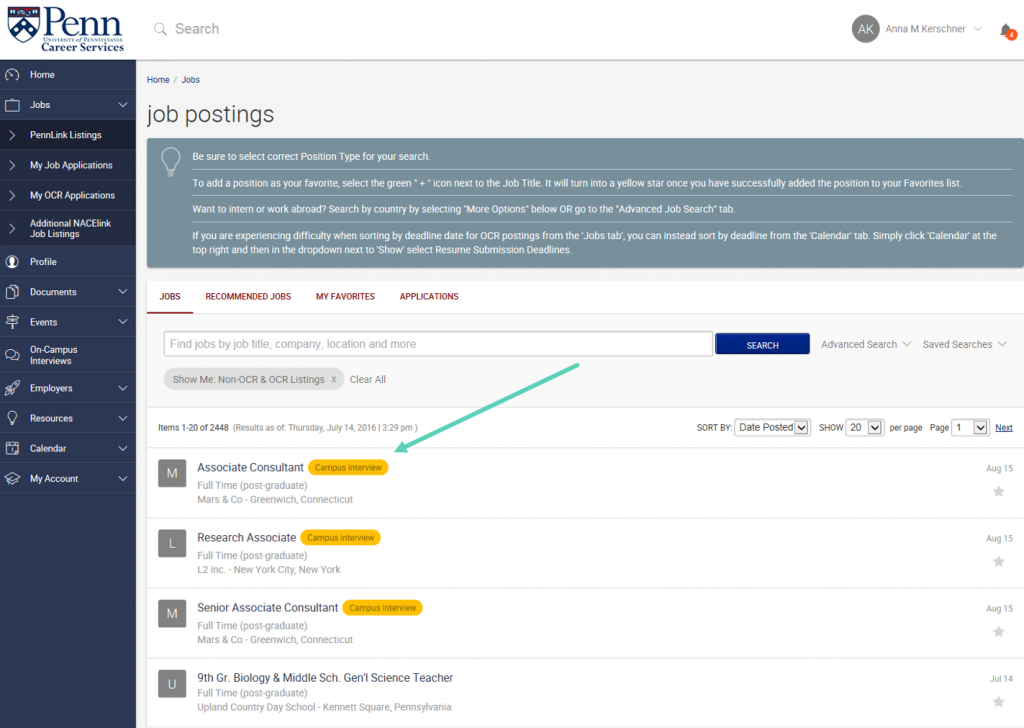Mylène Kerschner, Associate Director
If you’ve logged into PennLink in the past couple of weeks, you’ve noticed things look a bit different. Things are cleaner and more easy to navigate now, but we thought you might appreciate a few general pointers regarding the new layout.
What’s the deal with this “Profile __% Complete” alert at the top of my screen?
Previously, employers could only see the documents you submitted directly to them via your applications. Now you have a profile similar to one you might have on LinkedIn. Click into the top part of the page to go into your profile and to edit it in order to increase your percentage complete. Your profile is still private, but you have the option to create a URL that you can opt to share with employers. Currently (as of Summer 2016), this is something that only you can send to employers. Employers cannot find it on their own.
By clicking “publish,” you will be able to click a link to create and share your URL:
One important thing to note here: while you can add a personal statement, update your education and include projects and experiences, you won’t be able to update your GPA on this page. To update your GPA you will need to click on “My Account” from the left toolbar.
Choose “Academic” to get to your Academic profile. Here you will be able to update your GPA.
PennLink will also make smarter recommendations based on your searches:
And it’s even clearer to tell which jobs are OCR and which aren’t:
You can also see the resume submission or job posting date along the right column.
It’s even easier to conduct and then save an advanced search, and now you can save more than twenty searches (the old version maxed out at 10). You can also create search agents which will send you an email when a new opportunity is posted that matches your criteria. Here’s a quick tutorial:
We think you’ll really like the new easy-to-use format of PennLink. If you have any questions at all about the system, about OCR, or really anything related to your summer or post-graduation plans, stop in to meet with a counselor, or schedule a phone or Skype call if you’re not in Philadelphia: http://www.vpul.upenn.edu/careerservices/appointments
We’re looking forward to having you back on campus soon!


